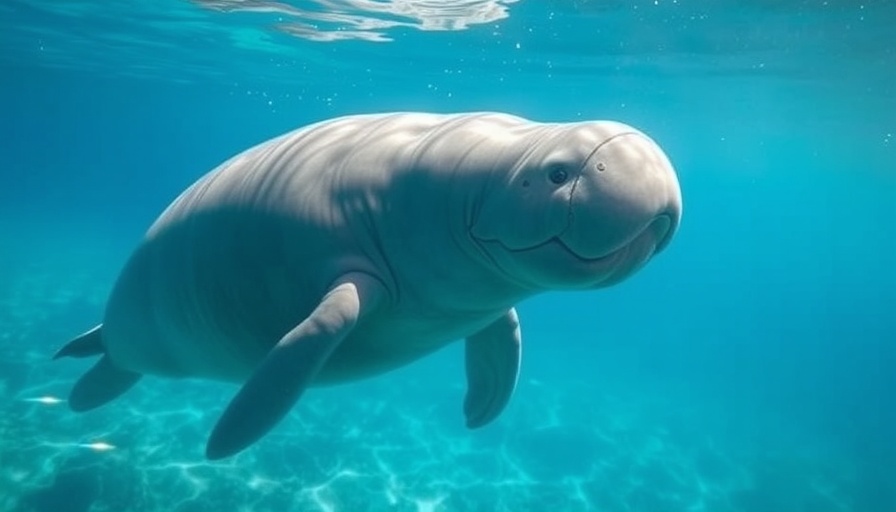
The Dugongs' Struggle: An Urgent Call for Conservation
In a coastal paradise known for its vibrant marine life, a silent crisis unfolds beneath the waves. As Thailand's seagrass meadows diminish, the country's beloved dugongs—mighty herbivorous mammals—find themselves in dire straits. Researchers like Piyarat Khumraksa, a marine veterinarian, have been sounding the alarm as the troubling data accumulates. Reports reveal an alarming spike in dugong deaths over the past two years due to the severe decline of seagrass, their primary food source.
Once a thriving ecosystem, these underwater gardens are now reduced to blackened stubs, spelling disaster for the dugong population. In 2022, Thailand recorded 273 dugongs in its waters, but with death rates significantly higher than the average, experts estimate that roughly one-third of this population has already vanished.
Understanding Seagrass Loss: What’s Behind This Critical Situation?
But what is causing the demise of seagrass? Experts suggest several factors could play a role, including sediment accumulation, rising sea temperatures, and predation from overgrazing by other marine animals. Furthermore, climate change has ushered in unusual low tides, leaving vast stretches of seagrass fatally exposed, ultimately leading to its decline.
Milica Stankovic, a researcher at the Prince of Songkla University, notes that areas like Krabi have seen their seagrass coverage plummet from a healthy 60% to an alarming 1%. This critical loss of habitat is not merely an environmental issue; it poses a direct risk to the food web that sustains marine life.
Current Measures and Future Pathways for Conservation
In response to the unfolding crisis, both governmental bodies and non-profit organizations such as the World Wildlife Fund (WWF) Thailand are ramping up efforts to implement conservation measures aimed at restoring seagrass. But can these efforts be enough? Khumraksa expresses skepticism regarding sustainability, given that the once-thriving seagrass ecosystem may take years to recover, if it can recover at all.
The average birth rate for dugongs has dramatically declined, dropping from 9% to a mere 3% as of 2024, a shift that underscores the severity of the situation. Eknarin Ariyavongvivat from WWF Thailand emphasizes the need for short-term and long-term strategies to elevate seagrass and dugong protection to a national priority. He warns, "If we let seagrass go, dugongs could face extinction, and the Andaman Sea's ecological balance will be irreversibly disrupted."
Why Should You Care? The Broader Implications of this Crisis
This crisis isn't just a concern for marine biologists; it is a wake-up call for all eco-conscious citizens. As stewards of the environment, everyone plays a role in addressing climate change, promoting biodiversity conservation, and advocating for environmental policies that protect vulnerable ecosystems. By understanding the interconnectedness of species like the dugong with their habitats, we realize that every choice can lead us toward sustainable living.
A Call to Action: How You Can Make a Difference
From reducing plastic waste to advocating for sustainable practices, there are numerous ways individuals can contribute to conservation efforts. Whether you opt for eco-friendly products or support organizations focused on environmental stewardship, your involvement matters. Initiatives like community gardens and marine conservation projects offer direct avenues for participation.
We need collective action to ensure that dugongs and their seagrass habitats survive for future generations. Embracing a sustainable future isn’t just an option; it’s an urgent necessity.
Take the initiative to reduce your carbon footprint, educate others about the plight of marine life, and engage in discussions around environmental policies. Your voice can help catalyze real change.
Join the movement for a healthier planet and strive for responsible consumption in your daily life. Every small action contributes to a greater purpose, protecting the very ecosystems that sustain us all.
 Add Row
Add Row  Add
Add 



Write A Comment